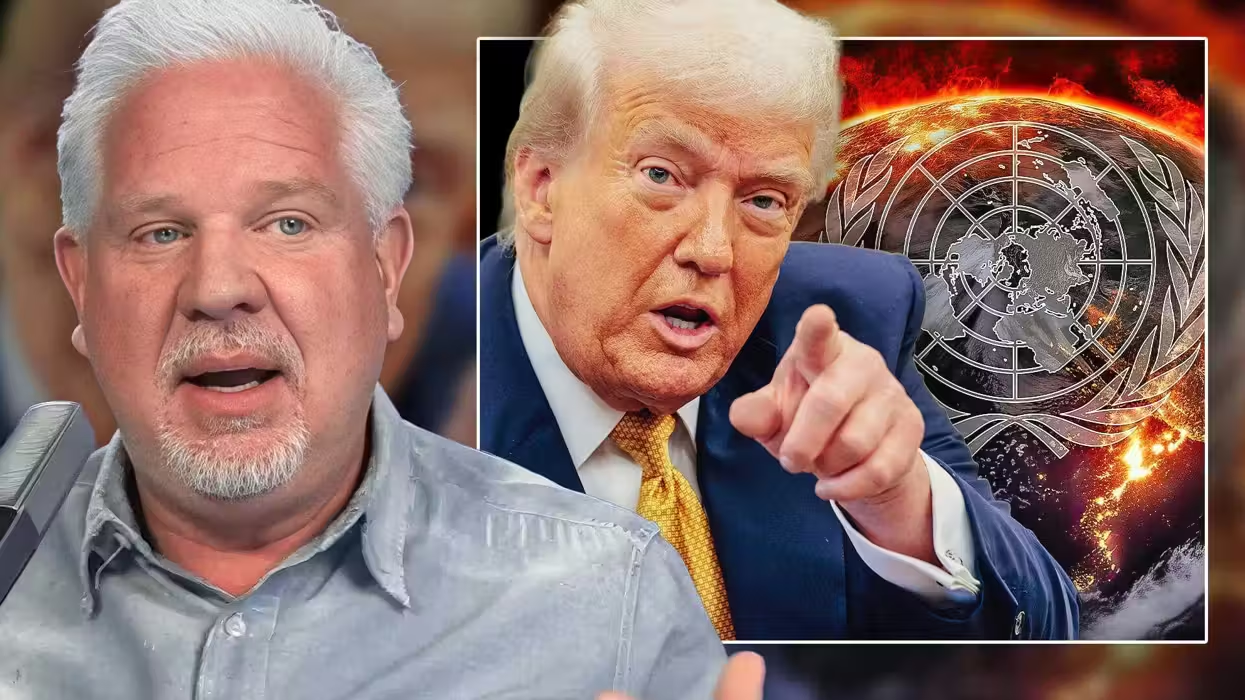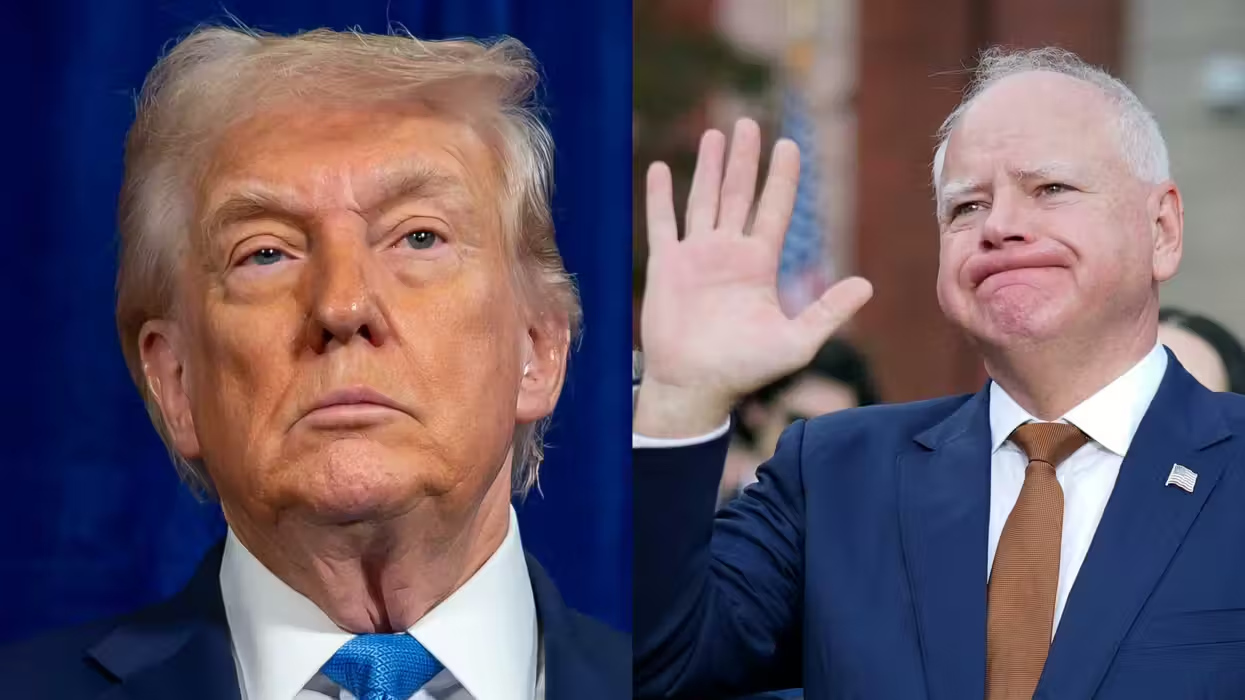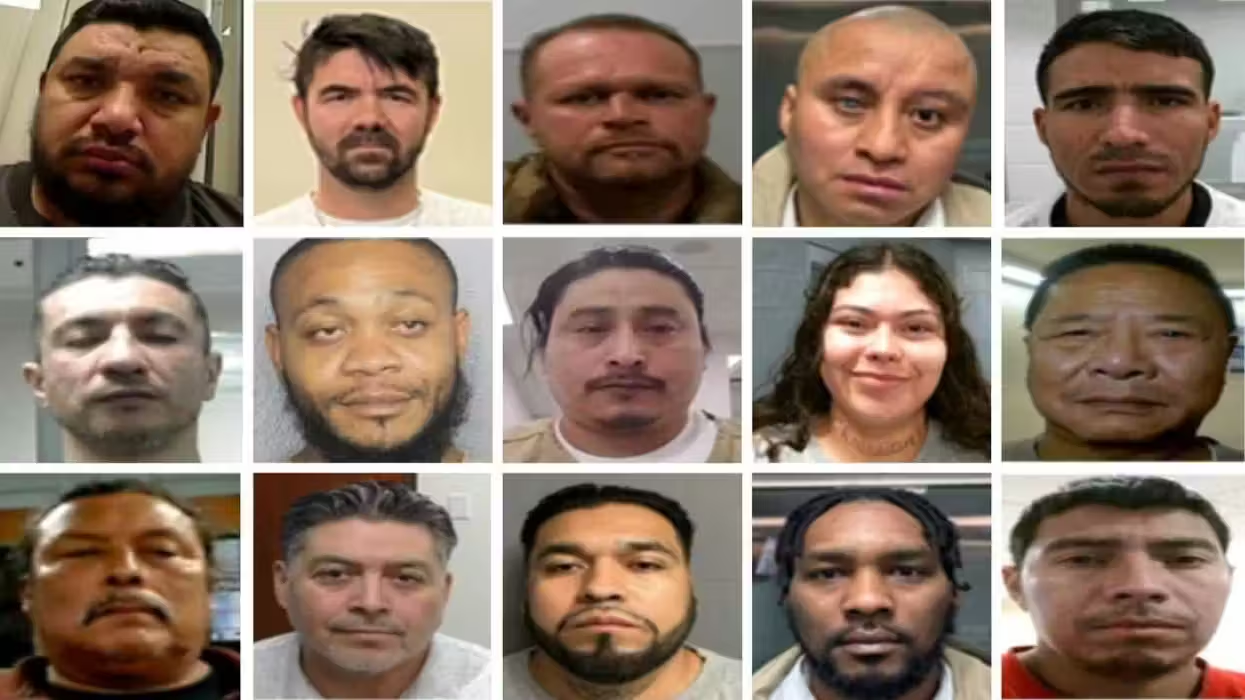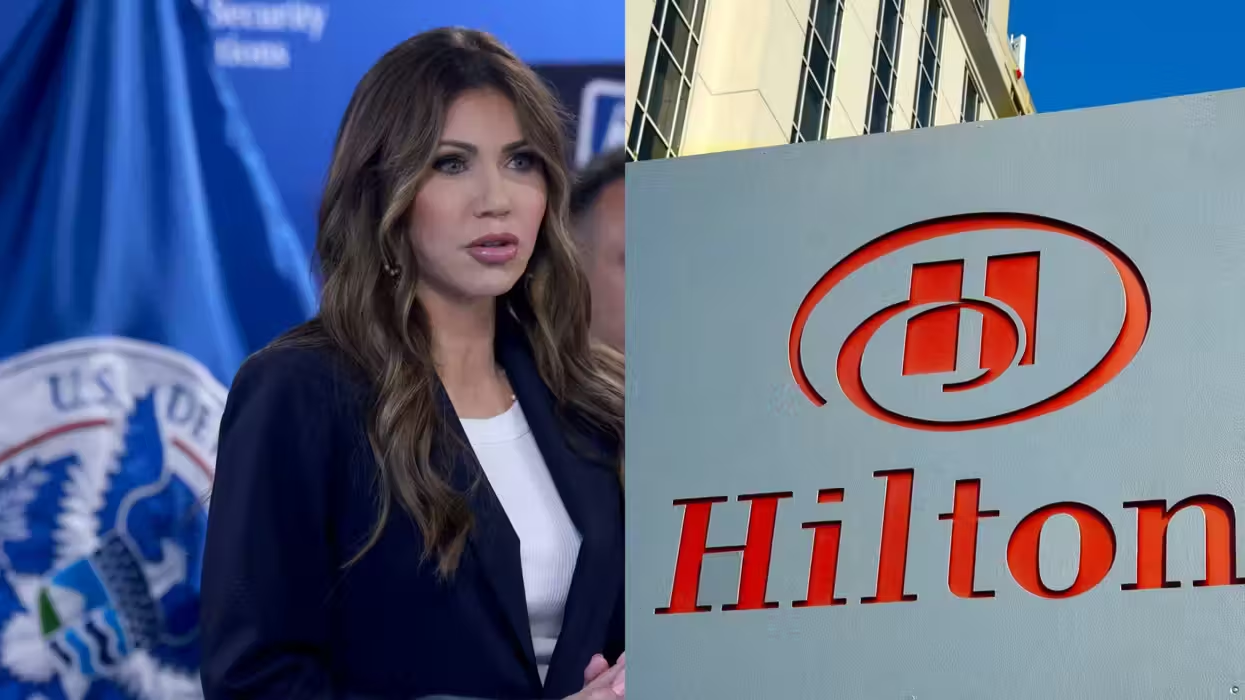
© 2026 Blaze Media LLC. All rights reserved.
John Lennon, born 75 years ago on Oct. 9, 1940, was a vocal anti-war activist and a high-profile example of the lengths to which the U.S. government will go to persecute those who dare to challenge its authority.
“You gotta remember, establishment, it’s just a name for evil. The monster doesn’t care whether it kills all the students or whether there’s a revolution. It’s not thinking logically, it’s out of control.”—John Lennon (1969)
John Lennon, born 75 years ago on Oct. 9, 1940, was a musical genius and pop cultural icon.
He was also a vocal peace protester, anti-war activist and a high-profile example of the lengths to which the U.S. government will go to persecute those who dare to challenge its authority.

Long before Chelsea Manning and Edward Snowden were being castigated for blowing the whistle on the government’s war crimes and the National Security Agency’s abuse of its surveillance powers, it was Lennon who was being singled out for daring to speak truth to power about the government’s warmongering, his phone calls monitored and data files collected on his activities and associations.
For a little while, at least, Lennon became enemy number one in the eyes of the U.S. government.
Years after Lennon’s assassination it would be revealed that the FBI had collected 281 pages of files on him, including song lyrics, a letter from FBI Director J. Edgar Hoover directing the agency to spy on the musician, and various written orders calling on government agents to set the stage to set Lennon up for a drug bust.
As the New York Times notes, “Critics of today’s domestic surveillance object largely on privacy grounds. They have focused far less on how easily government surveillance can become an instrument for the people in power to try to hold on to power. ‘The U.S. vs. John Lennon’ … is the story not only of one man being harassed, but of a democracy being undermined.”
Indeed, as I point out in my book "Battlefield America: The War on the American People," all of the many complaints we have about government today—surveillance, militarism, corruption, harassment, SWAT team raids, political persecution, spying, overcriminalization, etc.—were present in Lennon’s day and formed the basis of his call for social justice, peace and a populist revolution.
For all of these reasons, the U.S. government was obsessed with Lennon, who had learned early on that rock music could serve a political end by proclaiming a radical message. More importantly, Lennon saw that his music could mobilize the public and help to bring about change.
Lennon believed in the power of the people. Unfortunately, as Lennon recognized: “The trouble with government as it is, is that it doesn’t represent the people. It controls them.”
It was in 1972 that the official U.S. war against Lennon began in earnest after rumors surfaced that Lennon planned to embark on a U.S. concert tour that would combine rock music with anti-war organizing and voter registration. President Richard Nixon, fearing Lennon’s influence on about 11 million new voters (1972 was the first year that 18-year-olds could vote), had the ex-Beatle served with deportation orders “in an effort to silence him as a voice of the peace movement.”
The FBI, tasked with spearheading the effort to deal with the troublesome ex-Beatle, has had a long history of persecuting, prosecuting and generally harassing activists, politicians, and cultural figures, most notably among the latter such celebrated names as folk singer Pete Seeger, painter Pablo Picasso, comic actor and filmmaker Charlie Chaplin, comedian Lenny Bruce and poet Allen Ginsberg.
Among those most closely watched by the FBI was Martin Luther King Jr., a man labeled by the FBI as “the most dangerous and effective Negro leader in the country.” With wiretaps and electronic bugs planted in his home and office, King was kept under constant surveillance by the FBI with the aim of “neutralizing” him. He even received letters written by FBI agents suggesting that he either commit suicide or the details of his private life would be revealed to the public. The FBI kept up its pursuit of King until he was felled by a hollow-point bullet to the head in 1968.
While Lennon was not—as far as we know—being blackmailed into suicide, he was the subject of a four-year campaign of surveillance and harassment by the U.S. government, an attempt by Nixon to have him “neutralized” and deported. As Adam Cohen of the New York Times points out, “The F.B.I.’s surveillance of Lennon is a reminder of how easily domestic spying can become unmoored from any legitimate law enforcement purpose.”
Nixon’s pursuit of Lennon was relentless. Then, finally, in 1976, Lennon won the battle to stay in the country when he was granted a green card. By 1980, he had re-emerged with a new album and plans to become politically active again.
On the night of Dec. 8, 1980, when Lennon returned to his New York apartment building from a recording studio, Mark David Chapman was waiting in the shadows. As Lennon stepped outside the car to greet the fans congregating outside, Chapman, in an eerie echo of the FBI’s moniker for Lennon, called out, “Mr. Lennon!”
Lennon turned and was met with a barrage of gunfire as Chapman—dropping into a two-handed combat stance—emptied his .38-caliber pistol and pumped four hollow-point bullets into his back and left arm. Lennon stumbled, staggered forward and, with blood pouring from his mouth and chest, collapsed to the ground.
John Lennon was pronounced dead on arrival at the hospital. He had finally been “neutralized.”
Yet where those who neutralized the likes of John Lennon, Martin Luther King Jr., John F. Kennedy, Malcolm X, Robert Kennedy and others go wrong is in believing that you can murder a movement with a bullet and a madman.
Sadly, while Lennon’s legacy lives on in his words, his music and his efforts to speak truth to power, not much has changed for the better in the world in the years since his death.
Peace remains out of reach. Activism and whistleblowers continue to be prosecuted for challenging the government’s authority. Militarism is on the rise, with police acquiring armed drones, all the while the governmental war machine continues to wreak havoc on innocent lives. Just recently, for example, U.S. military forces carried out airstrikes in Afghanistan that left a Doctors without Borders hospital in ruins, killing several of its medical personnel and patients, including children.
For those of us who joined with John Lennon to imagine a world of peace, it’s getting harder to reconcile that dream with the reality of the American police state. For those who do dare to speak up, they are labeled dissidents, troublemakers, terrorists, lunatics, or mentally ill and tagged for surveillance, censorship or, worse, involuntary detention.
As Lennon shared in a 1968 interview:
"I think all our society is run by insane people for insane objectives… I think we’re being run by maniacs for maniacal means. If anybody can put on paper what our government and the American government and the Russian… Chinese… what they are actually trying to do, and what they think they’re doing, I’d be very pleased to know what they think they’re doing. I think they’re all insane. But I’m liable to be put away as insane for expressing that. That’s what’s insane about it.”
So what’s the answer?
Lennon had a multitude of suggestions.
“If everyone demanded peace instead of another television set, then there’d be peace.”
“If you want peace, you won’t get it with violence.”
“Say you want a revolution / We better get on right away / Well you get on your feet / And out on the street / Singing power to the people.”
And my favorite advice of all: “All you need is love. Love is all you need.”
–
TheBlaze contributor channel supports an open discourse on a range of views. The opinions expressed in this channel are solely those of each individual author.
Want to leave a tip?
We answer to you. Help keep our content free of advertisers and big tech censorship by leaving a tip today.
Want to join the conversation?
Already a subscriber?
more stories
Sign up for the Blaze newsletter
By signing up, you agree to our Privacy Policy and Terms of Use, and agree to receive content that may sometimes include advertisements. You may opt out at any time.
Related Content
© 2026 Blaze Media LLC. All rights reserved.
Get the stories that matter most delivered directly to your inbox.
By signing up, you agree to our Privacy Policy and Terms of Use, and agree to receive content that may sometimes include advertisements. You may opt out at any time.






